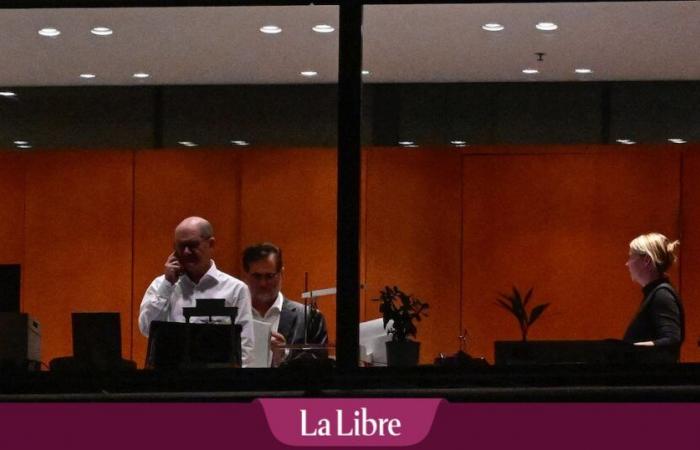Faced with “ultimatums” from his Minister of Finance, head of the liberal camp, Olaf Scholz judged that he had no choice: he first decided to dismiss Christian Lindner, the government’s big financier and president of the liberal party. FDP, then announced that he would ask the deputies the question of confidence.
The elected representatives of the Bundestag will decide on January 15 whether they want early legislative elections to be held before the date scheduled for September 2025. This could be the case in March.
Christian Lindner, leader of the liberal camp, has “too often betrayed my trust”, lamented the German leader, denouncing his “selfish” behavior.
A “letter of divorce” shakes up the German government
Impasse
The divorce was recorded after a day of crisis talks organized at the chancellery to try to save the executive led by Olaf Scholz since the end of 2021.
Coalition ruptures are very rare in Germany and Olaf Scholz wanted to lead his until the next legislative elections scheduled for September 28, 2025.
But the government team has been undermined for months by political dissensions, on the economy and immigration, and personal quarrels.
Disagreements focus on solutions to revive Europe’s largest economy, which is threatened with recession for the second year in a row.
Olaf Scholz’s social democrats want to preserve their social priorities; Robert Habeck’s Greens are pushing to fight climate change despite the costs of the transition while the liberals are stubbornly focused on respecting Germany’s drastic constitutional limits on budget deficits and debt.
The Shadow of Trump
Olaf Scholz thought that the election to the presidency of the United States announced the same morning of Republican Donald Trump, a fan of protectionism and diplomatic confrontations, would force his fragile coalition to close ranks.
The opposite happened. According to the daily Bild, the Minister of Finance argued during the crisis meeting that this election and the expected impact made a change of economic course in Germany even more urgent.
Green Vice-Chancellor and Economy Minister Robert Habeck urged everyone to come to their senses, stressing that with Trump’s return to power, “the government must be fully capable of acting.”
“This is the worst time for the government to fail,” he warned at the start of the week.
Another major argument against the breakup of the coalition, and therefore early elections: the conservatives are well ahead in the polls and their leader, Friedrich Merz, is the favorite to become chancellor.
As for the far-right AfD party, making strong progress in the last elections, it is lying in wait in second position.
But the gap between the coalition parties had become too great in recent days, with disagreements focusing on solutions to revive Europe’s largest economy which risks being in recession for the second year in a row.
The leak of a document by Christian Lindner with a view to a liberal “economic turn”, going against the centrist line hitherto followed by the government, was ultimately the last straw.
The minister, champion of budgetary austerity, had himself threatened on several occasions to leave the coalition before the end of the year if he did not win his case.






